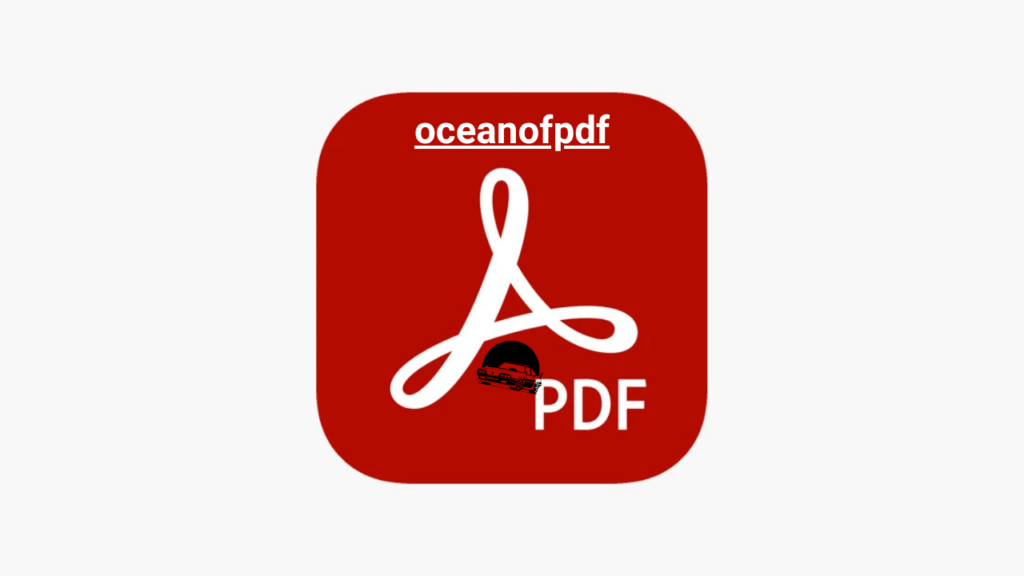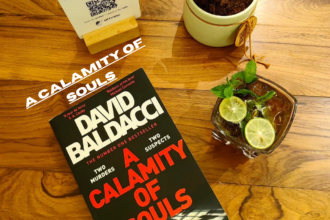In an age where digital consumption is at an all-time high, books have seamlessly transitioned from the shelves of libraries to the screens of smartphones, tablets, and e-readers. Among the many digital platforms that emerged to meet this growing demand, OceanofPDF stood out as both a savior to readers and a thorn to copyright holders. Celebrated for providing free access to a wide range of books, OceanofPDF quickly gained popularity across the globe.
However, with convenience came controversy. The platform sparked widespread debate on digital piracy, the rights of authors, and the ethics surrounding free book distribution. OceanofPDF wasn’t just a site; it was a symbol of a larger, ongoing conflict between accessibility and intellectual property protection. This article delves deep into the origin, rise, fall, and future of OceanofPDF, while also exploring its lasting impact on readers and the publishing industry.
Understanding OceanofPDF requires not just technical insight but also an examination of the broader cultural and legal dynamics that surround digital content sharing. As we navigate through the various aspects of this controversial platform, we aim to offer a balanced view that considers both reader accessibility and the rights of creators.
What is OceanofPDF?

OceanofPDF was a website that offered users free access to a vast collection of PDF versions of popular books, novels, and academic texts. From bestsellers and classics to educational materials, the site became a go-to resource for book lovers and students alike. Launched with a simple interface and a straightforward search and download feature, OceanofPDF gained traction for its extensive catalog and zero-cost access to content that would otherwise require purchase.
The platform featured an intuitive layout that allowed users to search by book title, author, or genre. Within seconds, users could download a PDF or ePub file and start reading. For individuals in developing countries or those with limited resources, OceanofPDF served as an invaluable portal to knowledge and entertainment. The site was often shared on forums, social media groups, and student networks, rapidly increasing its user base.
However, the core of OceanofPDF’s model rested on unauthorized distribution. Most of the content available on the site was copyrighted and shared without permission from authors or publishers. This practice eventually drew the attention of legal authorities and copyright advocates, setting the stage for a high-profile digital battle.
The Appeal of OceanofPDF
One of the primary reasons for OceanofPDF’s explosive growth was its ability to make books accessible to everyone, especially in regions where legal access was either unavailable or unaffordable. The appeal lay in the promise of free, unrestricted reading. Users no longer had to spend hours hunting for academic textbooks or popular fiction; everything was just a click away.
The convenience factor cannot be overstated. With a user-friendly interface, no registration requirements, and instant downloads, OceanofPDF made it incredibly easy for even the least tech-savvy individuals to get their hands on quality reading material. In addition, many users praised the site’s speed, reliability, and the absence of annoying advertisements or subscription walls that plague many legal platforms.
Community forums and reading groups often recommended OceanofPDF for hard-to-find titles, and over time, it cultivated a loyal base of return visitors. For students, it was a treasure trove of textbooks; for literature lovers, it offered rare finds and bestsellers alike. Compared to paid services like Amazon Kindle or subscription-based platforms such as Scribd, OceanofPDF presented an irresistible offer: everything for free.
Yet, this convenience came with a hidden cost. While readers celebrated the site’s offerings, authors and publishers voiced growing concerns about the financial and ethical implications. The free model wasn’t just bypassing paywalls; it was circumventing the entire legal framework designed to protect creative work.
Legal and Ethical Controversies
The success of OceanofPDF was short-lived as it drew the attention of copyright enforcement agencies and publishing houses. In mid-2018, the site was abruptly taken down following legal complaints from several publishers. It briefly resurfaced under different domain names, but the original site never fully regained its former stature.
At the heart of the controversy was the unauthorized distribution of copyrighted materials. OceanofPDF violated intellectual property laws by sharing digital copies without the consent of rights holders. This led to serious concerns from authors, many of whom publicly condemned the site for undercutting their livelihoods. Publishing companies viewed the platform as a direct threat to their revenue and a dangerous precedent in the digital content ecosystem.
The ethical dilemma also sparked intense debates online. Some argued that knowledge and literature should be universally accessible, especially in education. Others emphasized the importance of respecting the intellectual labor of authors, editors, and publishers. While OceanofPDF did democratize reading to an extent, it did so by infringing on the very system that supports literary creation.
Despite takedown efforts, clones and mirror sites continue to appear, proving the ongoing demand for free reading materials. This cycle of shutdown and resurrection highlights the challenges of enforcing digital copyright laws in a borderless internet environment.
Impact on the Publishing Industry
The ripple effect of platforms like OceanofPDF is profoundly felt in the publishing industry. Piracy leads to lost sales, which in turn affects the financial sustainability of publishing houses and independent authors. While major publishers may absorb the impact to some degree, indie authors often struggle to make ends meet when their books are freely circulated without compensation.
Moreover, piracy undermines the value of creative work. When readers become accustomed to accessing books for free, the perceived worth of literature diminishes. This devaluation discourages new writers and reduces the incentive for publishers to invest in diverse or experimental projects. The long-term effect is a homogenized literary landscape driven more by commercial viability than artistic or educational value.
In response, many publishers have tightened digital rights management (DRM) protocols and pursued legal action against offending sites. Some have also begun exploring new distribution models, such as subscription-based access or bundling books with other digital services, to stay competitive. Yet, the challenge remains: how to make books accessible while preserving the rights of creators?
Alternatives to OceanofPDF
For readers seeking free and legal alternatives, there are numerous platforms offering high-quality ebooks without violating copyright laws. Open Library, for instance, provides access to millions of books, many of which are in the public domain. Project Gutenberg is another reputable source, offering over 60,000 free ebooks, including classics in multiple formats.
ManyBooks, Google Books, and Smashwords also provide legitimate options for readers who want affordable or free books. For academic needs, platforms like JSTOR (with limited free access) and Directory of Open Access Books (DOAB) serve as valuable resources. Subscription-based models such as Kindle Unlimited and Scribd offer affordable access to vast libraries, balancing accessibility with author compensation.
Libraries are also evolving, with many offering digital lending through apps like Libby and OverDrive. These services allow users to borrow ebooks legally and for free, provided they hold a library card. Readers can thus support the ecosystem without turning to piracy.
Choosing legal alternatives not only protects users from potential malware or legal trouble but also supports authors and keeps the literary world thriving.
The Current Status and Future Outlook
Although OceanofPDF in its original form no longer exists, mirror sites and similar platforms continue to emerge. These copies operate in legal gray zones, often hosted in jurisdictions with lenient copyright enforcement. While takedown efforts are ongoing, the persistence of such platforms reveals a deep, unmet demand for affordable reading material.
Looking ahead, the future of ebook piracy is tied to broader technological and legal developments. Advances in blockchain, digital watermarks, and AI could offer new ways to track and protect digital content. At the same time, the publishing industry may need to rethink pricing, licensing, and accessibility to address the root causes of piracy.
There’s also potential for decentralized book-sharing networks, where content is distributed legally but more equitably. As the world becomes increasingly digital, striking a balance between protecting intellectual property and promoting literacy will be essential.
Conclusion
OceanofPDF was more than just a website; it was a flashpoint in the ongoing struggle between digital freedom and copyright enforcement. While it succeeded in making books accessible to a global audience, it did so at the expense of legality and ethical standards. The platform highlighted critical flaws in how books are priced, distributed, and protected online.
As the digital landscape continues to evolve, both readers and creators must work toward a model that values access and compensation equally. Supporting legal alternatives, encouraging fair pricing, and fostering global literacy should be the shared goals of all stakeholders in the publishing ecosystem.
FAQs
Is OceanofPDF legal to use?
No, OceanofPDF distributed copyrighted material without authorization, making it illegal in many jurisdictions.
Why was OceanofPDF taken down?
It was removed following legal complaints from publishers regarding copyright infringement.
Are there safe alternatives to OceanofPDF for free books?
Yes, platforms like Project Gutenberg, Open Library, and ManyBooks offer free and legal access to ebooks.
Can I get in trouble for downloading books from piracy sites?
Yes, users may face legal consequences, especially in countries with strict copyright enforcement.
What are the best legal resources for free ebooks?
Project Gutenberg, Open Library, Libby, ManyBooks, and Google Books are excellent options.
You May Also Read: https://topbuzusa.com/daytimestar-com-taipei-self-driving-gharry/





